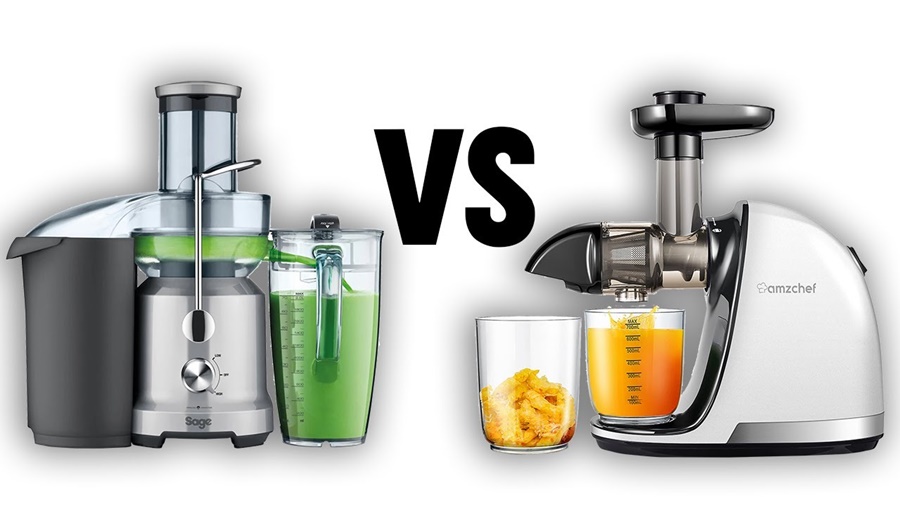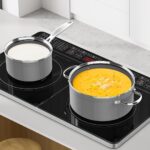When it comes to nutrient extraction and healthy lifestyles, both cold press juicers and blenders are top contenders. However, their mechanisms, benefits, and outcomes are vastly different. Choosing between a cold press juicer and a blender ultimately depends on your health goals, lifestyle, and personal preferences. In this article, we provide a deep comparison to help you make the most informed decision.
What Is a Cold Press Juicer?
A cold press juicer, also known as a masticating juicer, operates by slowly crushing and pressing fruits and vegetables to extract juice. Unlike traditional centrifugal juicers that rely on high-speed blades, cold press juicers minimize heat and oxidation, resulting in juice with higher nutrient retention.
Key Benefits of Cold Press Juicing
- Maximum Nutrient Preservation: The slow extraction process protects delicate enzymes and vitamins such as Vitamin C, B-complex, and antioxidants.
- Higher Juice Yield: Cold press juicers extract more juice per ounce of produce, which means less waste and more value.
- Longer Shelf Life: Cold-pressed juices can last up to 72 hours when stored properly, without significant degradation in quality.
- Reduced Foam and Separation: The juice is smoother and more stable, with minimal separation over time.
- Ideal for Leafy Greens and Herbs: Unlike many blenders or centrifugal juicers, cold press machines efficiently handle kale, spinach, wheatgrass, and other fiber-rich greens.
What Is a Blender?
A blender uses high-speed rotating blades to chop, mix, and liquefy whole fruits and vegetables. Blenders retain all parts of the produce, including the pulp and fiber, producing a thick beverage often referred to as a smoothie.
Key Benefits of Blending
- Full Fiber Retention: Blenders preserve all the dietary fiber, which is essential for digestive health, blood sugar regulation, and satiety.
- Versatile Use: Beyond smoothies, blenders can be used for soups, nut butters, sauces, frozen desserts, and more.
- Faster Preparation: No need to peel or chop as finely—just throw everything in and blend.
- Lower Cost and Maintenance: Blenders are generally more affordable and easier to clean compared to cold press juicers.
Cold Press Juicer vs Blender: Nutritional Comparison
Vitamins and Enzymes
Cold press juicers preserve more of the heat-sensitive vitamins and live enzymes because of the minimal heat and oxidation involved. In contrast, high-speed blenders can cause slight nutrient degradation due to frictional heat, especially with prolonged blending.
Fiber Content
Blenders retain all soluble and insoluble fiber, which helps regulate digestion, control blood sugar, and promote a feeling of fullness. Cold press juicers remove most of the fiber, focusing on delivering concentrated nutrients quickly into the bloodstream.
Absorption Rate
Juices from cold press juicers are absorbed faster due to the lack of fiber, providing an instant boost of hydration, vitamins, and minerals—ideal for post-workout recovery or detoxing. Blended smoothies take longer to digest but provide longer-lasting energy and digestive support.
Texture and Taste Differences
Juice (Cold Press)
- Light and smooth
- No pulp
- Concentrated flavor
- Clear appearance
Smoothie (Blender)
- Thick and creamy
- Contains pulp and fiber
- More filling
- Heavier taste and texture
Your choice here will largely depend on whether you prefer a light beverage you can sip quickly or a meal-replacement smoothie with substance.
Use Cases: Which Should You Choose?
Choose a Cold Press Juicer If You:
- Want the highest nutrient concentration
- Are looking to do a cleanse or detox
- Prefer light, refreshing juices
- Consume juices as part of a short-term health boost
- Prioritize enzyme and vitamin preservation
Choose a Blender If You:
- Want to maintain full fiber intake
- Need a meal replacement or filling snack
- Value versatility in food preparation
- Prefer a quick, easy cleanup
- Are on a budget
Cost and Maintenance
Cold Press Juicer
- Initial Cost: High ($150–$500+)
- Cleaning: Time-consuming (multiple parts, fine mesh)
- Prep Time: Longer (due to smaller feed chutes and produce prep)
- Durability: Built to last with regular maintenance
Blender
- Initial Cost: Lower ($30–$300+ depending on brand)
- Cleaning: Easy (usually just one container and blades)
- Prep Time: Quick and convenient
- Durability: Excellent, especially high-powered models like Vitamix or Blendtec
Environmental Impact: Waste and Efficiency
Cold press juicers create more pulp waste, though this can be composted or reused in recipes like veggie burgers, soups, or dog treats. Blenders produce zero waste, using the entire fruit or vegetable.
Health Goals Alignment
| Health Goal | Best Tool |
|---|---|
| Detoxification | Cold Press Juicer |
| Weight Loss (low calorie) | Cold Press Juicer |
| Digestive Health | Blender |
| Meal Replacement | Blender |
| Quick Nutrient Boost | Cold Press Juicer |
| Long-term Sustained Energy | Blender |
Which One Should You Buy First?
If you’re just starting a health journey, begin with a blender. It’s more versatile, affordable, and easier to use daily. For seasoned wellness enthusiasts looking to add an extra layer of nutrient optimization, investing in a cold press juicer is an excellent next step.
Best Cold Press Juicers on the Market
- Omega J8006HDS – Excellent for leafy greens
- Hurom H-AA Slow Juicer – Sleek design, high yield
- Nama J2 – Auto-feeding system, time-saving
Top Blenders for Smoothie Lovers
- Vitamix 5200 – Professional-grade blending
- Ninja Foodi Power Blender – Affordable and powerful
- Blendtec Total Blender – Preset programs, easy clean-up
Conclusion
Both cold press juicers and blenders offer significant health benefits, but they serve distinct purposes. If you’re looking to optimize nutrient absorption, especially during detox or cleansing, a cold press juicer is your best bet. If you’re after balanced, fiber-rich meals and versatility, a blender should be your go-to.
For those committed to a holistic, plant-based lifestyle, having both in your kitchen arsenal delivers the best of both worlds quick energy from juice and sustained wellness from smoothies.








Leave a Reply